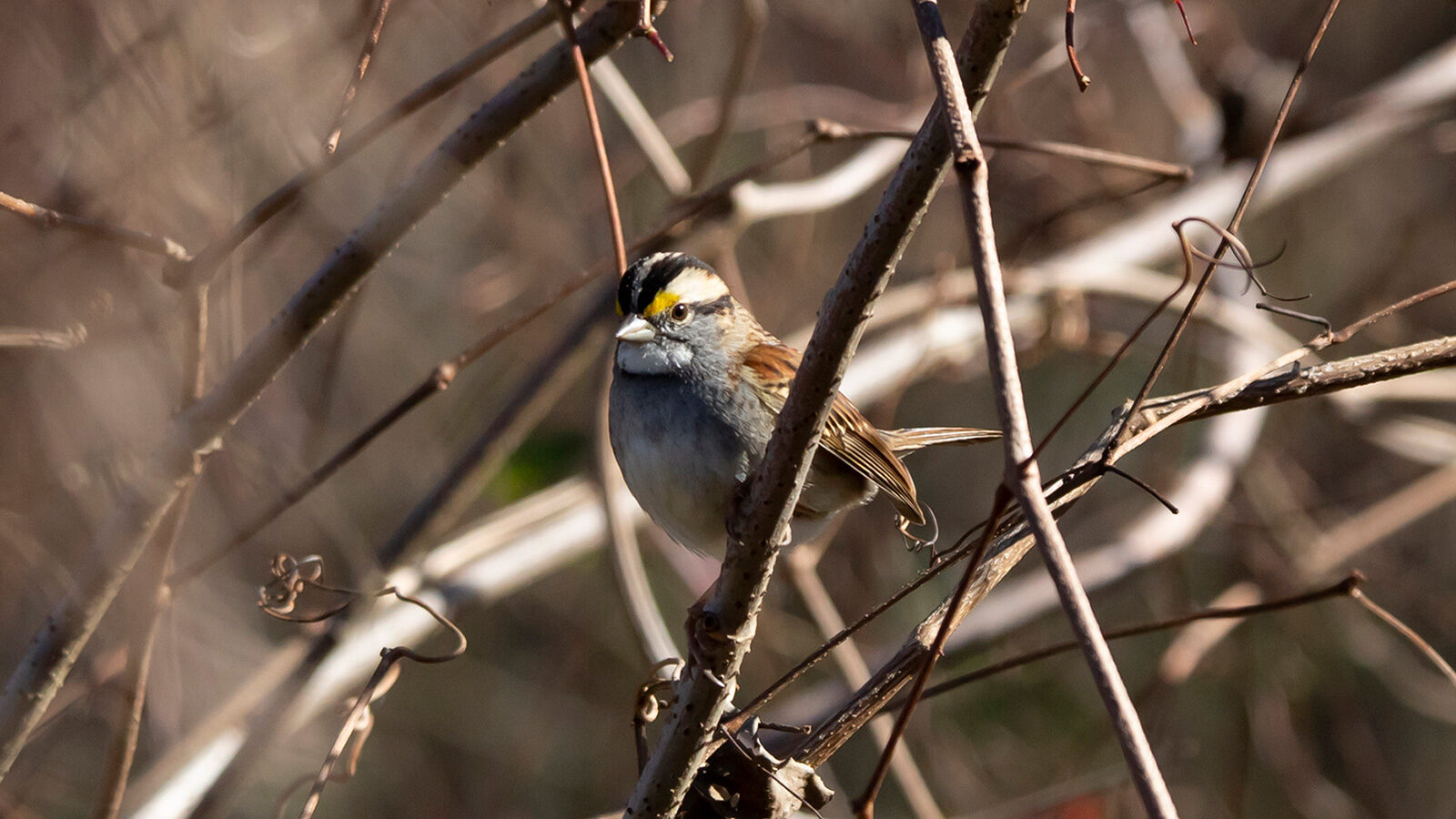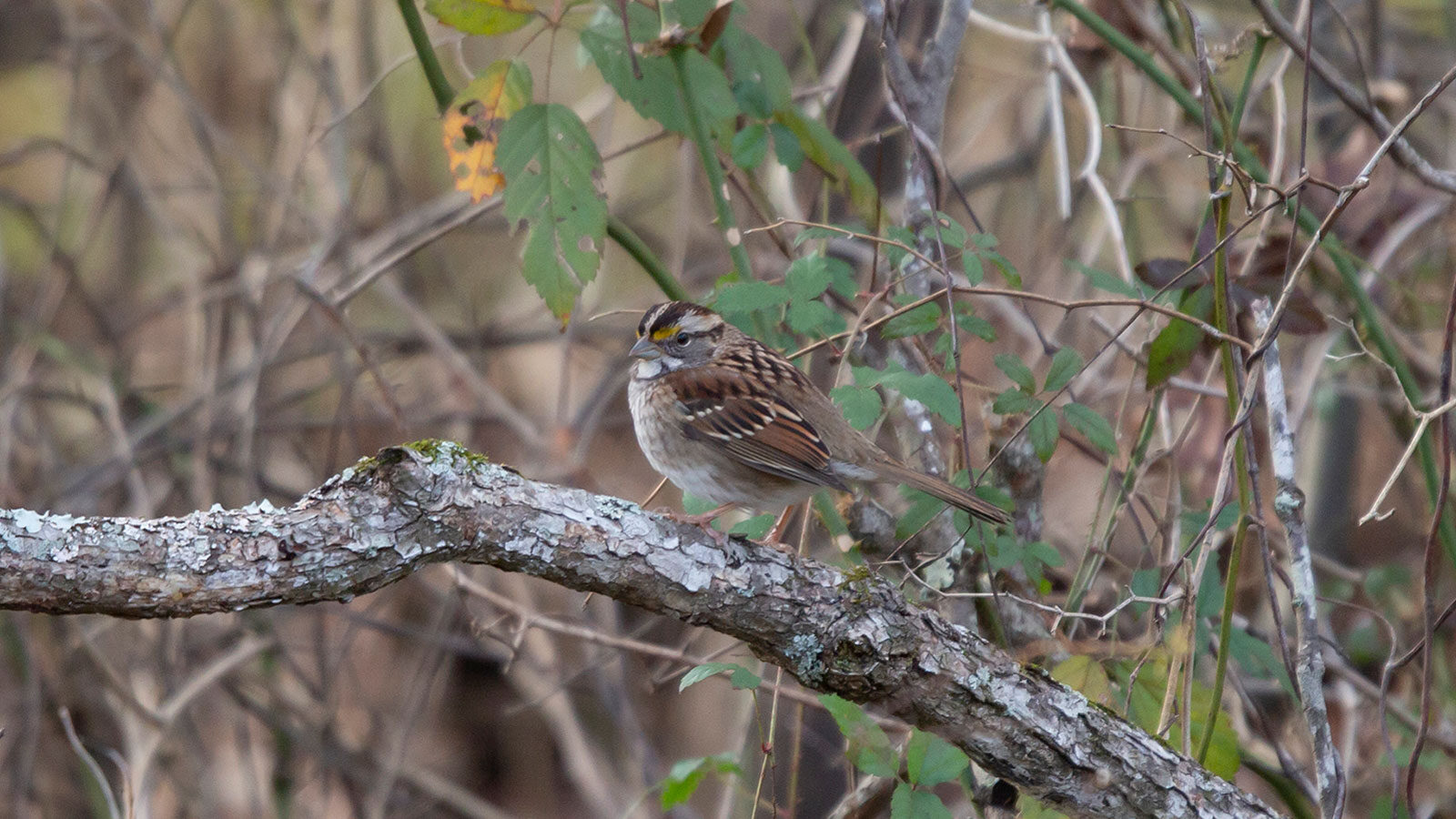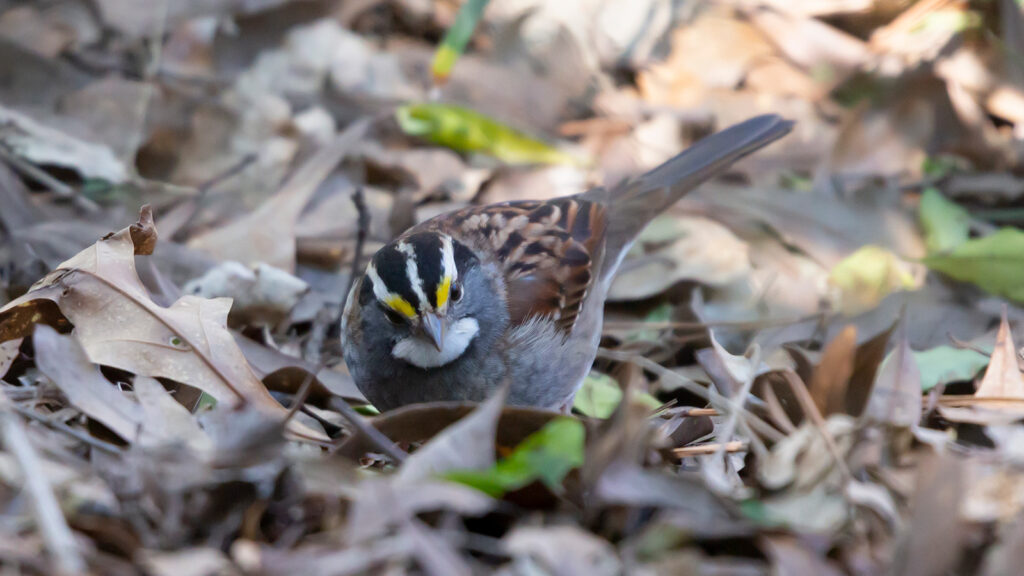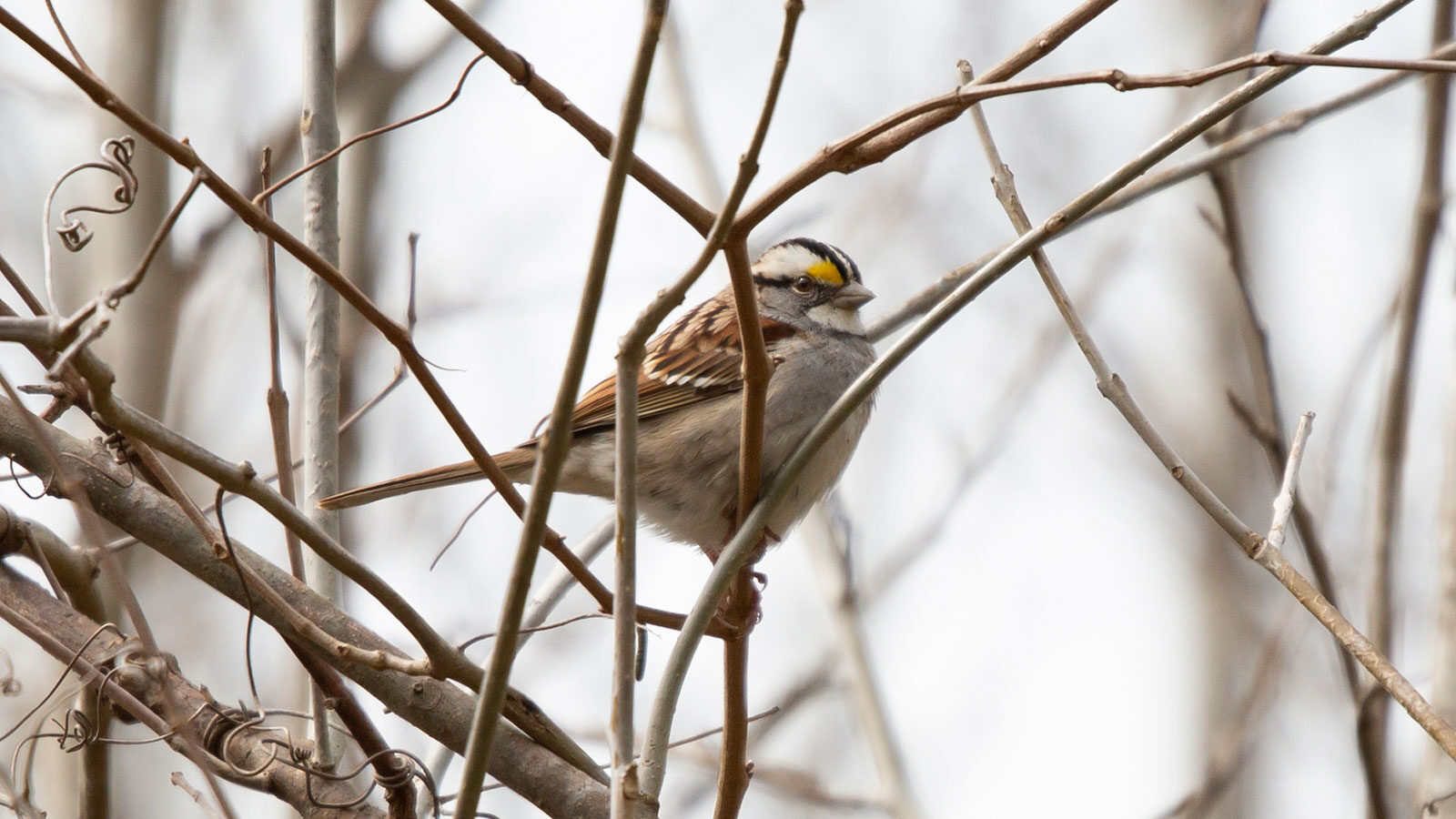
Did you know that white-throated sparrows can mate with dark-eyed juncos?
White-Throated Sparrows
at
a Glance

Key Features:
White-throated sparrows have black and white striped heads, brown backs, brown wings, yellow between their eyes and beaks, white throats, gray beaks, buff chests, gray faces, and buff bellies.
Least Concern - Population Stable
Habitat:
Forests, backyards, fields, and parks
nesting habits:
White-throated sparrows build nests in depressions in the ground, under shrubbery, in dead vegetation, on grass out of deer hair, grass, moss, pine needles, rootlets, twigs, and wood chips.
seasons white-throated sparrows are active in our area:
Winter
Diet:
Seeds, blossoms, buds, fruits, and insects
hunting Behavior:
White-throated sparrows forage on the ground in leaf litter.
Commonly Confused With:
Song Sparrows and White-Crowned Sparrows

